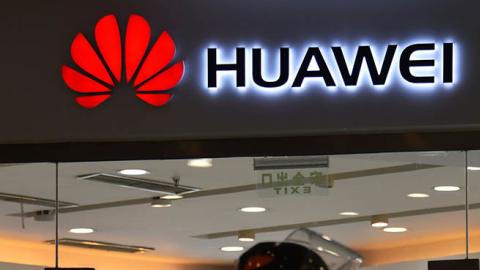The arrest of Huawei’s CFO Meng Wanzhou at Vancouver Airport on December 1, sent shock waves through the global high-tech community as well as in world capitals from Washington and Beijing to London and Berlin.
The immediate issue is whether Meng will be extradited to the U.S. to face charges that the Chinese IT giant used a Hong Kong shell company, Skycom, to sell products containing American components to Iran in contravention of sanctions (Meng and Huawei deny the charge: Monday's bail hearing is scheduled to conclude today).
What makes this arrest such a landmark isn’t just the fact that Meng is heir apparent to the Chinese tech company her father founded and which has gained nearly $100 billion in revenue in 2018; or because Huawei is currently the world’s biggest supplier of telecom network equipment and number two cellphone producer (Apple is third); or even the fact this arrest falls in the midst of a declared 90-day truce in the on-going trade battle between China and the Trump administration.
Instead, this is a shot across Beijing’s bow in a much bigger struggle, the one for high-tech supremacy between the U.S. and China—the one that will decide the fate of the 21st century. Meng’s arrest sends the message that Huawei, and its Chinese Communist Party puppet masters, are playing a dangerous game, if they think they can win this high-stakes struggle by any means fair or foul.
Winning by any means has been a Huawei trademark for some time. For example, two Huawei engineers used a 2014 visit to T-Mobile’s labs in Seattle to steal information and even a piece of confidential T-Mobile equipment., a robot that simulated finger-taps to test cell phone performance. Not only did Huawei take unauthorized photos of the robot, they stole one of its fingers. In 2017 a Seattle jury decided that Huawei had misappropriated T-Mobile trade secrets and awarded the wireless operator $4.8 million in damages.
Huawei also has a long track record in intellectual property theft. In 2004, for instance, Cisco Systems took Huawei to court for stealing its core router software code and using it in Huawei routers. Routers are the core hardware technology at the heart of the Internet; Huawei routers are widely used across China and Europe. The case was settled confidentially, but in 2012 Cisco used the occasion of Huawei’s effort to deny it had stolen Cisco code to review for the public the original litigation, which had accused Huawei of “direct, verbatim copying of our source code, to say nothing of our command line interface, our help screens, our copyrighted manuals and other elements of our products.”
Even more ominously, Huawei has been one of the key contractors for China’s Great Firewall, which is far more than just a particularly harsh and intrusive system of internet censorship. It’s China’s effort to give authoritarian regimes everywhere an alternative model to the open internet we take for granted in America, and which Chinese companies like Huawei and ZTE help to build. It’s an internet completely at the mercy and under the control of the government, from its physical infrastructure and the flow of online data and information, to the software and hardware supporting everything from e-commerce and social media—including those Huawei routers.
No wonder, then, that Huawei has long been seen as a front for spying by the Chinese military or security services, and no wonder that both the CIA and FBI have warned consumers not to buy Huawei products. Both AT&T and Verizon have both pulled out of deals to sell Huawei phones in the U.S. Some U.S. allies have done the same. Australia, for example, banned Huawei and ZTE from providing 5G technologies inside its borders, while former Canadian Prime Minister Stephen Harper recently called for his government to follow the Australian and U.S. lead. Japan is doing the same.
Others have not been as careful. As pointed out in a previous column, Huawei’s tentacles have now reached out to more than 60 countries with contracts or agreements to use or test Huawei equipment for their 5G networks, including Italy and Great Britain. The problem is, once Huawei’s dubious equipment gets installed with its Chinese-origin hardware, it’s not so easy getting out. A brand-new National Interest report entitled, “Huawei: A Trojan horse inside Taiwan?” notes that Huawei equipment was still being found in the island’s backbone telecom networks two years after Taiwan’s 2013 official ban on Huawei hardware took effect.
So whatever happens, let the Meng arrest serve as a warning. Getting entangled with Huawei involves more than just the risk of being cheated or deceived by a predatory telecom company. It also involves serious national security risks, as well as collaborating with a company that has helped to give the motto “Made in China” a bleak authoritarian ring.

















